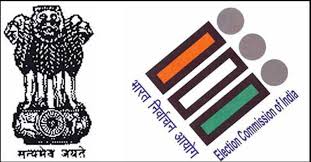Election Commission of India Issues Guidelines to Promote Respectful Discourse for Persons with Disabilities

New Delhi: In a pioneering move, the Election Commission of India (ECI) has issued guidelines aimed at fostering respectful discourse regarding Persons with Disabilities (PwDs) within the political arena. Recognizing the significance of inclusivity and accessibility in the electoral process, the Commission urges political parties and candidates to adhere to these guidelines during public statements, speeches, writings, articles, and political campaigns.
The guidelines emphasize refraining from using derogatory language, offensive terms, or stereotypes related to disabilities. The Commission has been alerted to instances of ableist language in political discourse, and these guidelines aim to curb such practices. Offensive terms like dumb, retarded, blind, deaf, and lame are specifically highlighted as language to avoid.
Salient features of the guidelines include:
- Prohibition of ill, derogatory, or insulting references to disability or PwDs in public statements, speeches, writings, articles, or political campaigns.
- Avoidance of using disability or PwDs in the context of human incapacity during public speeches, writings, or political campaigns.
- Strict avoidance of comments related to disabilities or PwDs that may perpetuate stereotypes and prejudices.
- Recognition that any usage of offensive language or insult to PwDs may attract provisions of Section 92 of the Rights of Persons with Disabilities Act 2016.
Political parties are required to conduct internal reviews of campaign materials, speeches, social media posts, and press releases to identify and rectify instances of ableist language. Additionally, they must commit to using gender-sensitive language, respecting human equality, equity, dignity, and autonomy. The guidelines suggest adopting rights-based terminologies from the Convention on Rights of Persons with Disabilities (CRPD) and ensuring accessibility in public speeches, campaigns, events, and online content.
The Commission encourages political parties to make their websites and social media content digitally accessible, provide disability training for party workers, and appoint a nodal authority to address complaints related to ableist language. The guidelines also advocate for increased representation of PwDs at various levels within political parties to overcome attitudinal barriers.
Background:
The ECI’s initiative builds on existing efforts to create an inclusive environment for PwDs in the electoral process. Over the years, facilities such as ground-floor polling stations, Braille signage on Electronic Voting Machines, ramps, separate queues, wheelchairs, and home voting options have been introduced to ensure an accessible and inclusive voting experience.
The Right for Persons with Disabilities Act, 2016, provides protection against abuse, violence, and exploitation, with Section 92 specifying punishment for offenses related to disability. The guidelines underscore the importance of collective efforts to create a society that does not discriminate based on disability.




